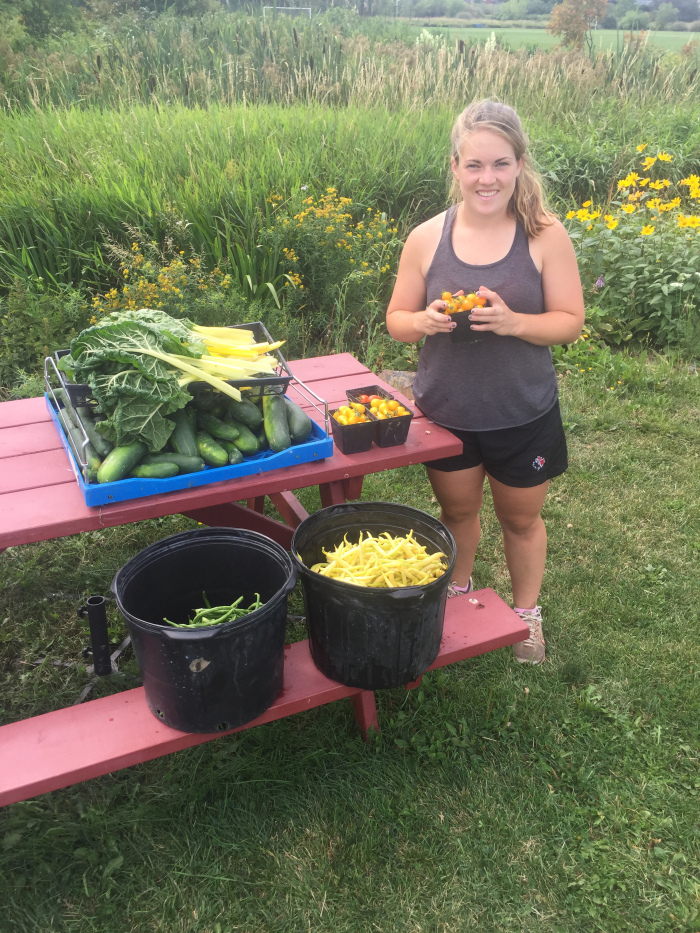What’s Growing at Acadia
By Sarah Boudreau, Acadia Community Farm Coordinator
and Jodie Noiles, Acadia Sustainability Coordinator
Acadia has a long history of growing food for the campus community, but also for teaching and research. From Acadia’s inception until the mid-1950s there was a working farm on the Acadia campus with livestock, fruit, and vegetables grown for the dining hall. In 1893 the Acadia School of Horticulture was established by the province of Nova Scotia with 60 students enrolled in its first year. In those early years many students worked on the farm for room and board while learning about agriculture. Over time, as the Acadia population grew, land was required for new buildings and the farm was no longer viable, closing in 1956. The horticultural school also eventually outgrew Acadia and was moved in 1905 to its current location in Truro, now the Dalhousie Agricultural Campus.
Despite these changes, teaching and research about food continued at Acadia with important academic work across many departments including the School of Nutrition and Dietetics, and the Departments of Biology, Community Development, Sociology, and the School of Business. In recent years interest in topics such as food security, community food systems, and sustainable agriculture has grown significantly among students, so much so that in 2008 students Alex Redfield and Hillary Barter asked Acadia for a plot of land for a farm garden at Acadia. They envisioned a place where students could once again grow good food for the university dining hall, and where they could work and learn alongside faculty, friends, and neighbours in a community garden.
The university agreed, and the Acadia Community Farm was established, making this the tenth anniversary season! The Acadia Farm half-acre educational and community garden is located behind the Acadia Athletic Complex. It is dedicated to producing local, organic food for Wheelock dining hall and provides a friendly and supportive atmosphere where students and community members alike can grow food for themselves in individual plots, which make up the community garden. Through workshops, conferences, and volunteer opportunities, the farm also engages and educates the Acadia and Wolfville community on many topics.
With continued support from Acadia University as well as partners such as Chartwells, the Acadia Student’s Union, the Town of Wolfville, and Friends of Agriculture Nova Scotia, every year the Farm grows, with some of the most recent additions being a beehive for teaching and research and a cold frame for late season production. The beehive houses over 20,000 bees and is managed by the Department of Biology and the Acadia Beekeeping Club. The cold frame extends the growing season into the colder months of November and December by protecting plants from harsh frosts and snow.
Currently tomatoes, beans, cucumbers, swiss chard, kale, lettuce, garlic, cabbage, asparagus, strawberries, pumpkin, squash, and sunflowers are growing in the garden. Once they are ripe and ready, with the help of students and community volunteers, they will be harvested and delivered to Wheelock Dining Hall for Acadia University students to enjoy. In addition to gardening, other activities include food preserving workshops, guest speakers, documentaries and more.
Students, faculty, staff, and community members are welcome to get involved as volunteers, community plot holders, or as participants in any of our events and activities. Visit acadiafarm.org or sustainability.acadiau.ca to learn more.
